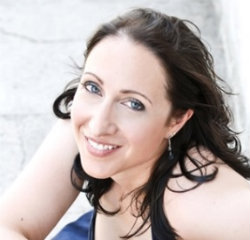BEHIND THE BOOK
Honestly, I Don't Want to Slit Your Throat Also Known as the Brutal Badassery of Author and Character:
Whenever I walk into an event—be it a book signing, Q&A or author’s talk—it’s pretty easy to spot the participants who’ve read my author bio and at least one book, but haven’t yet interacted with me online or in person. It’s easy because they’re the ones wearing the guarded, concerned looks, subtly checking me out for signs of sanity, as if at worst I might be right on the edge of snapping and at best might need some soothing and comfort.
I suppose, really, this can’t be helped. Unusual characters populate my books, and I’ve led an unusual life. This has resulted in the most frequently asked question being: "How much of Vanessa Michael Munroe is based on you?"
At the beginning, this conflation between character and author baffled me. Vanessa Michael Munroe is a hyperpolyglot (someone who speaks more than 12 languages), born and raised in equatorial Africa. She took up with gunrunners at the tender age of fourteen and carries the mental and physical scars of a violent adolescence. To plagiarize myself from THE MASK, “The missionary’s daughter, made to walk through the valley of the shadow of death, had come out the other side an apex predator.” She’s a chameleon, a hunter, an adrenaline junkie, self-contained, indifferent and shut off from the world—except when she’s not.
Oh that I was so brutally badass. Can you imagine the results I’d get at PTA and HOA meetings? Unfortunately, Munroe and I are nothing alike. Well, except for a hijacked childhood—we do both have wacky backgrounds. Mine had me born and raised in an apocalyptic religious cult, growing up as child labor in cult communes, spending far too much time out begging in the cold, and having my education stopped completely when I was twelve.
But I’d made peace with all that long before turning to fiction. I started writing as a way to bring to life a small, paranoid, corrupt country off Africa’s west coast where I’d lived for a little over two years. The thought of drawing on my childhood and adolescence for that first tale never even crossed my mind, and if it had, we would have had completely different characters—and probably not very good ones. I’m far too happy and enamored with life to belong in these intense, dark stories. I cry when I see sunsets and hear moving music, smile at everyone, am a total fraidy cat, and am overly empathetic to the point that my heart bleeds out onto my sleeve which is super embarrassing. In perfect irony, I also hate suspense and violence—can neither watch it on screen nor read it in books—and yet that’s what I write.
Because I’m so opposite the characters that populate these stories, and because Munroe was drawn completely from imagination and snippets of other fictional characters (Jason Bourne and Lara Croft), I couldn’t understand at first how anyone could think she represented a real-life person, much less me. But then it got worse. People I’d never met used my fiction as a way to psychoanalyze the author, going on about my tormented psyche, insisting I was obsessed with violence against women, as if they knew me, as if assuming something about me magically made it true. Offended and insulted, I wondered if they also thought Carrie was based off Stephen King (apparently, the answer to this question is also sometimes yes).
Once my skin thickened up a bit, once I realized how completely cool the character and author fusion was, I was able to embrace these assumptions for what they were: the ultimate compliment—proof of good storytelling—because the only way fantasy and reality can blend into such earnest beliefs is if the fiction feels real enough for the reader to assume that the character had to have been drawn from real life, somehow.
These days I wear the conflation like a badge of honor, and when people ask me how much of Munroe is based on me, I look them dead in the eye and say, “all of it.”
Taylor Stevens is an award-winning and New York Times bestselling novelist who—by odds and expectations—should never have become either successful or published. Like many aspiring authors Stevens had no credentials or platform, and no direct route into the publishing world. But, unlike most, she was also limited by a life of cultural isolation and a sixth-grade education.
Born into an apocalyptic cult and raised in communes across the globe, Stevens grew up as a child laborer, cooking and cleaning for up to a hundred at a time, caring for younger commune children, or out on the streets begging on behalf of commune leaders. Books, movies, music, and pop-culture from the outside world were strictly forbidden, and she finally gained unlimited access to fiction after returning to the United States in her early thirties. Her books have since been published in over twenty languages, with The Informationist optioned for film by James Cameron’s production company, Lightstorm Entertainment.

|





